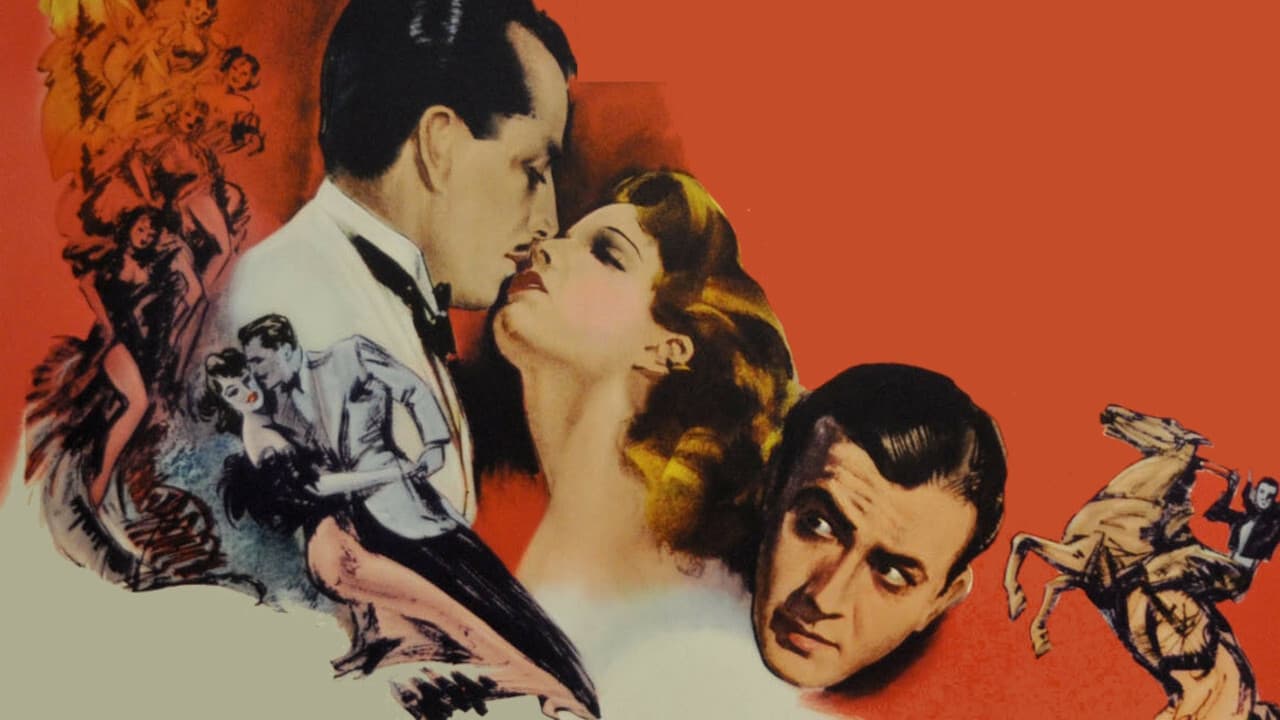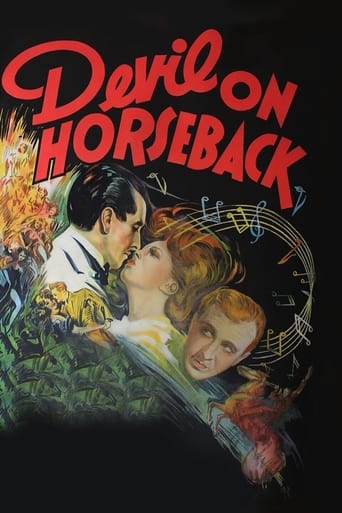



Waste of time
Too many fans seem to be blown away
I enjoyed watching this film and would recommend other to give it a try , (as I am) but this movie, although enjoyable to watch due to the better than average acting fails to add anything new to its storyline that is all too familiar to these types of movies.
View MoreExcellent and certainly provocative... If nothing else, the film is a real conversation starter.
View MoreThis is a strange movie. Most of the cast members speak English with Spanish or French accents, there is a crypto-Lesbian, a crypto-Gay man, some serious senorita knife throwing (by the delightful Guatemalan dancer Blanca Vischer, whose line delivery is so astoundingly lame it is almost cult-worthy), a bizarre Samba-esquire ancient fiesta dance to the Moon (totally wacko), some glorious shots of a nice Mexican steam locomotive, an incredible singing performance by the remarkable Del Campo (WHAT A VOICE!), and more cute double-entendres than you can shake a stick at. (He: "My love for you is like a rushing river that can't be stopped!" She: "I'll dam it.").Oh, and the lead horse -- Del Campo's horse -- my god, what a beautiful animal. He's a tall black Arabian-style guy. A stupendous horse. There's a nice dun too, and a blaze-faced horse who doubles first as a bandito pony and later as an Army mount. Really, for horse fans, this movie is a treat because these animals are not from the usual Hollywood remuda -- these are some fine Mexican horses, well bred, well caparisoned, and very well ridden. If that black guy had been in America, he'd have been some Western star's steady ride very soon. As it is, this may be his only starring film. Kinda like Blanca Vischer.
View MoreA retired rebel breaks his government exile in order to meet a visiting Hollywood starlet. He's then talked into abducting her by her publicity-hungry manager (It doesn't take much convincing.) and brought to his hacienda. The charismatic rebel spends the next couple of days attempting to charm her, while competing with a coffee heir and contending with a jealous senorita.A mildly entertaining, lightweight romantic comedy, this has a few risqué moments (for 1936 anyway) and flirts around with the idea of one character possibly being a lesbian! There's also a a few interesting songs, that before long change into dance numbers as well, threatening to turn the film into a full-on musical.A frothy adventure, it would have benefited from some name stars.
View MoreFor an early Western, this one has a lot going on. There's action, adventure, romance, and probably enough song and dance numbers to qualify as a musical. I don't think I've seen one before where the basic premise involves a staged kidnapping in order to drum up publicity for a touring movie star (Lili Damita as Diane Corday). It sounds like it could have been a Gene Autry theme, so maybe there's another one out there that I'll have to wait for to pop up.There's also a fair amount of comedy too, with some clever retorts like the one in my summary line. That one came from secondary character Jane Evans (Jean Chatburn), an aide to Miss Corday who when she let her hair down, was actually the best looking female in the picture. She's also on the receiving end of a line from Juan Torres (Juan Torrena), who gives her pair of slacks away while she's taking a swim - "Your pants, from now on you'll do without them"! Hmm, I think old Juan might have had more on his mind.I haven't mentioned yet that all this takes place in a fictional country that sounded something like Alturiz, but certainly a Mexican knockoff if there ever was one. Miss Corday finds herself in the middle of a romantic triangle involving her manager Gary Owen (Fred Keating), and the likable bandit Pancho Granero (Del Campo). Pancho's intentions are real regarding the actress, romancing her with love songs and sweet talk, and you get the feeling things might go his way at times. I was curious throughout why the real fiancée Owen never seemed to mind, although there was one very quick altercation between himself and Pancho. But they were buddy buddy immediately afterward. That angle was the most obvious head scratcher of the picture.There is a particular segment that's noteworthy, the Fiesta scene that included the most amazing costuming that fairly screamed for color. It was a well executed production number with lively song and dance that was probably the highlight of the picture. Soon after, the federales made their appearance to rescue Miss Corday, but that was all worked out without any fuss or bother. Owen got the girl, and the Robin Hood of Alturiz was left to consider all the rest of the pretty senoritas of the hacienda.
View MoreI have a poster for this film which touts it as in "full glorious colour". The copy I have is in black and white. There is the odd fragment missing, and some of the dialogue is a little out of synch. Otherwise, if this be the only copy around, there is no point in complaining.Diane (pronounced dee-ANN) Corday (Damita) is a Hollywood star visiting the fictitious Meso-American country of Alturas. Pancho (Del Campo) is a bandit who is a huge fan of hers - so huge that during kissing scenes involving Diane while watching the film, he will - Elvis style - take out a pistol and shoot at the screen. He and his muchachos surround a train carrying Diane. A journalist aboard thinks it would be good publicity for Diane if she were kidnapped by bandits. The kidnapping happens for real,and Damita and her entourage are taken to Pancho's hacienda. There is some singing and dancing before the principal characters pair off with the right people.My own opinion is that this is a B movie that was out of style in 1936 let alone now. The direction is patchy, and the production lacks the sheer professionalism of the big studios And, although there are some good performers in the cast, they struggle with a poor script. The train conductor's cap and Damita's vocal flourishes are one of the few things to raise a laugh in this so-called comedy. The settings are very claustrophobic. The only solo singer in the film (Del Campo) has a superb singing voice, and the music is quite good, as is the dancing. Del Campo and Damita get to cut a short but impressive caper.I'm not certain, but if my memory serves me correctly, there was a Spanish language version of this film, and I think practically the entire cast were changed for that, even though many of them - Damita certainly - could speak excellent Spanish. I am pretty sure that the film was set in a fictitious country to keep on the right side of the Mexican government who had (rightly in my opinion) complained that Mexicans in Hollywood films were nearly always portrayed as villains. The film features uniformed mounted police called "federals." ("Hey, Gringo! What is wrong with los federales?")This is more evidence of Mexican government appeasement.The film is perfectly watchable, even if it is almost certainly the second worst film featuring Damita. (Brewster's Millions must be the worst.)
View More